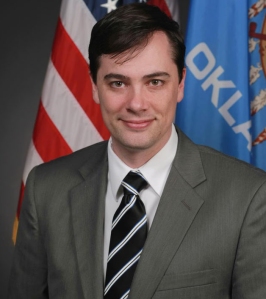![]()
Shortly after the conclusion of the 2012 legislative session, I wrote an article based in part on my observations of the last stressful days of that session.
In that article I explained how I have enjoyed the opportunity to see the governance process up close and from a legislator’s vantage point. I like to carefully observe and think about how processes work – and could work better – and I try to learn from the actions of the personalities involved in setting the policies that affect so many.
This includes taking note of how legislators operate under all conditions, especially the stressful conditions of the fast-paced legislative environment. I see where rhetoric meets up with reality.
Here is my observation which I shared in that 2012 article. There are plenty of legislators who wear faith on their sleeve. They use God in their campaign materials, participate and even organize public prayer events, and speak at the various church and faith-based groups which attend events at the capitol.
When I see a lawmaker publicly proclaiming their faith, I have learned to not take the proclamation at face value but to instead wait and observe that person’s actions.
Some of those same lawmakers also lose their temper when things don’t go their way; defend the dishonest legislative process status quo that allows legislators to hide their true position from their constituents; vote based on personality conflicts instead of on principle; and, retaliate against those who have slighted them. They may not hesitate to stick a finger in your face and tell you what they think when you fail to do what they want.
In short, their actions do not match their words. These politicians ignore two of the very foremost tenets of the Christian faith. They fall into the temptation to act deceitfully and fail to treat others as they would like to be treated.
This leads me to question whether these politicians really believe, or if perhaps some of them are playing politics with God’s name. I would suggest the latter to be a dangerous practice.
Before a politician campaigns on the platform of faith he must be prepared to consistently apply and follow the principles of faith in his own life.
Much like a preacher must straighten out his life before he starts preaching, a politician should do the same prior to entering the political arena on a faith-based platform. He must remain honest – not an easy task in the political environment – and treat others courteously even under the most difficult of circumstances. When a politician aggressively promotes his faith and subsequently acts in a way not consistent with its most important principles, he risks doing far more harm than good.
There is a tremendous calling for Christians to serve in government. Much of our founding values and our legal code were built on Judeo-Christian principles. These are the principles that have made our nation great and they are under attack like never before. I have observed instances where elected officials actually defend these principles and live their faith at the same time. But I have also noted they aren’t necessarily always the ones who push to the front of the line to declare that faith.
I have tremendous respect for those elected officials who proclaim their faith not through their words but through their actions: not an easy task in politics. They show the best way to demonstrate the importance of Christianity is to simply practice its principles no matter how stressful the environment, and people will notice.
Since the 2012 article, I have continued to make these observations and next week I would like to share the specifics of one of them.
Thank you for reading this article. Your interest and input are much appreciated. Please do not hesitate to email Jason.Murphey@hd31.org with your thoughts and suggestions.





Be the first to comment on "When faith meets politics"